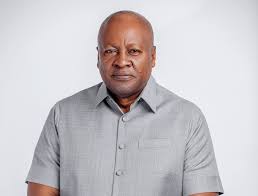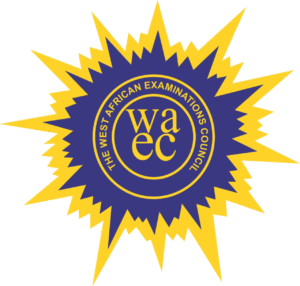President Announces New Reforms to Transform the Education Sector

President John Dramani Mahama has unveiled a comprehensive roadmap to revitalise Ghana’s education system, focusing on foundational learning, technical and vocational training, teacher development, and decentralised governance as pillars for national progress.
Speaking at a brief ceremony at the Jubilee House last Thursday, the President received the final report of the National Education Consultative Committee (NECC), chaired by former Pro Vice-Chancellor of the University of Cape Coast, Prof. George K.T. Oduro. The eight-member committee was tasked with engaging a wide range of stakeholders to craft transformative proposals for education reform.
The event was attended by Vice-President Prof. Naana Jane Opoku Agyemang, Education Minister Haruna Iddrisu, and other senior government officials.
President Mahama commended the collective efforts of educators, students, civil society, religious institutions, researchers, and development partners, calling the report a “milestone in Ghana’s quest to reposition education as a catalyst for inclusive growth, social justice, and national development.”
“Education is the heartbeat of every progressive society,” the President stated. “It is not merely about transmitting knowledge; it is about empowering minds, nurturing character, and preparing young people for responsible citizenship and meaningful work.”
Confronting Long-standing Challenges
President Mahama acknowledged persistent issues facing the education sector, including unequal access and quality, inadequate infrastructure—particularly at the basic and preschool levels—learning gaps in literacy and numeracy, a curriculum misaligned with job market needs, and inefficient governance structures.
Despite these challenges, he expressed optimism, noting that the NECC report offers a clear and actionable pathway forward, built around five key reform areas.
Focus on Foundational Learning and TVET
Underscoring the importance of early education, the President called for a national commitment to foundational learning, ensuring that every child masters reading, writing, arithmetic, and critical thinking by age 10.
He also emphasised the need to modernise and destigmatise Technical and Vocational Education and Training (TVET), aligning institutions with the demands of emerging economic sectors. He announced support for a National Apprenticeship Programme to bridge the skills gap and support his broader vision of a 24-hour economy.
Investing in Teachers and Local Governance
Recognising the critical role of educators, President Mahama outlined plans to overhaul teacher training colleges, expand professional development opportunities, and implement a fair system of incentives.
He also advocated decentralising education governance, criticising the inefficiencies of centralised management. He called for local decision-making in school administration and teacher deployment.
To make secondary education more accessible, especially in rural areas, he proposed a hybrid model combining boarding and community day schools under the Free SHS policy.
Boosting Infrastructure Through Local Funding
Addressing infrastructure concerns, President Mahama noted that while uncapping the GETFund has supported the Free SHS programme, it has also limited infrastructure development.
To counter this, the government will channel up to 80% of the District Assemblies Common Fund (DACF) into building basic education infrastructure, including classrooms and furniture.
“Each district has been assigned a set number of schools to construct annually using part of their DACF. This will help address the infrastructure gap,” he explained.
National Commitment and Implementation
President Mahama assured that the reforms will be integrated into the 2026 Budget and the medium-term development strategy, with implementation beginning in the coming year.
He called for a united national effort involving Parliament, the Ghana Education Service, religious organisations, teacher unions, the private sector, and international partners.
Paying tribute to Ghanaian education icons such as James Kwegyir Aggrey, Efua Sutherland, Prof. J.H. Kwabena Nketia, and Ama Ata Aidoo, President Mahama urged the nation to honour their legacy by building a world-class education system.
“The classroom is the foundation of our republic,” he declared. “If we get education right, we’ll get everything else right—health care, jobs, innovation, civic responsibility, and nation-building.”
With the NECC report officially submitted, the President called for swift action: “Together, we’ll build an education system that is Ghanaian in character, African in relevance, and global in quality.”





